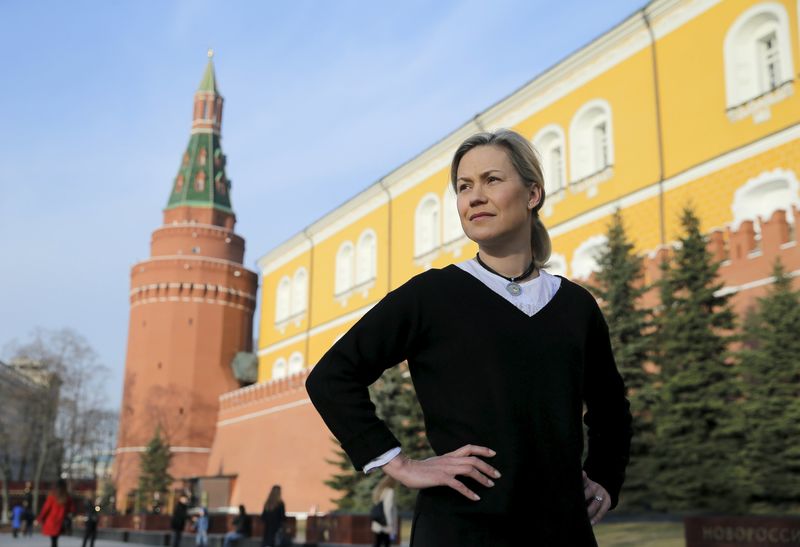By Polina Devitt and Katya Golubkova
MOSCOW (Reuters) - Investors are starting to look at Russia again after cutting off exposure amid geopolitical tensions two years ago, the head of Credit Suisse's $60 million Russian Equity Fund said.
There are no big inflows yet but a rebound in Russian stock markets in the past few months as the oil price and the rouble have picked up is encouraging interest, Anna Vaananen told Reuters.
"The same people, I am seeing for the first time in two years, are now asking for an update on what is going on with the Russian market," Vaananen said. "I think it is actually a real change."
The top holdings in the Swiss bank's Russian Equity Fund include the country's largest lender Sberbank (MM:SBER), retailers Magnit (MM:MGNT) and X5 (L:PJPq), oil producer Lukoil (MM:LKOH), the biggest search engine Yandex (O:YNDX) and the top mobile phone operator MTS (MM:MTSS).
As of the end of March, the fund had made a gross return of 7.4 percent since the start of this year but was down 9.9 percent over the past three years.
Like other emerging markets, Russian equities have improved after a volatile start to the year. The Moscow stock exchange's dollar-denominated RTS index (IRTS) is up 45 percent since its January lows on the back of higher oil prices and a strengthening of the rouble. The rouble-based MICEX (MCX) is up 19 percent from January lows.
While economic sanctions imposed on Russia and a weak economy kept investors away over the past two years, the price of oil, the country's chief export, has stabilised in the past few weeks while some Western investors say they hope sanctions will be softened in the coming months.
Vaananen sees Russia's economy bottoming out during the second quarter and then starting to gradually recover, driven by declining inflation, falling interest rates and improving consumer confidence.
Despite the economic slowdown, the state is still spending in areas that will drive consumption and so create opportunities for minority investors, she said, advocating consumer-related stocks.
"If we look at the budget expenditure, it actually gives us an opportunity because the major part of the budget expenditure goes into pensions, public sector salaries, and ... the military where there are a lot of salaries as well ... and that money goes into consumption," she said.
She expects consolidation to gain pace in sectors such as food retail, IT, Internet, transport and home building, as companies win market share from their weaker rivals, damaged by the lack of capital in the last two years.
Shares of privately owned exporters, mainly in the metals and mining sector, which are not paying high taxes, may also start to look attractive to retail investors, Vaananen said.
She also sees a chance that state-run exporters, like Bashneft (MM:BANE) and Alrosa (MM:ALRS), would increase their dividend payments at some point to support regions where their main assets are based.
She is more cautious about the oil and gas sector, which is the main source of state spending, paying 30 percent of its revenue in taxes. That limits the sector's own dividend potential for minority investors, she said.

"That's why I think one needs to be very realistic in the oil and gas sector," Vaananen said. "They are more tactical investments sometimes, rather than fundamental investments for minority shareholders."